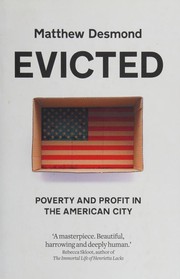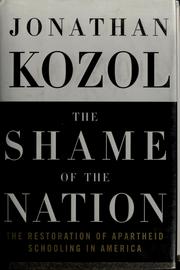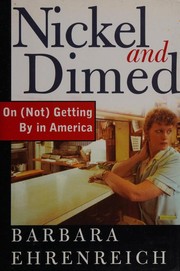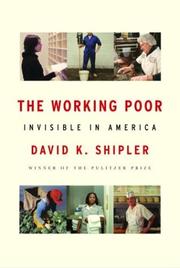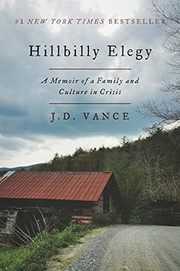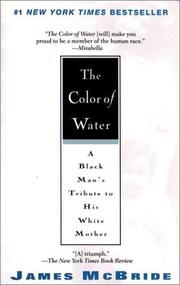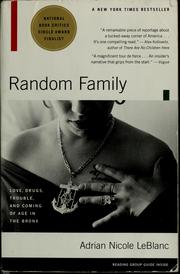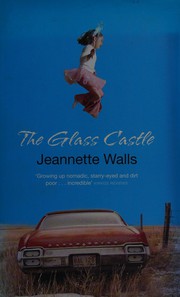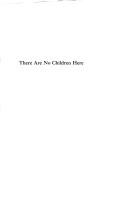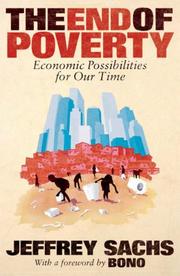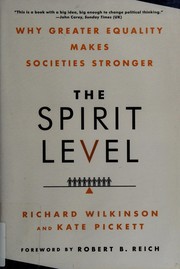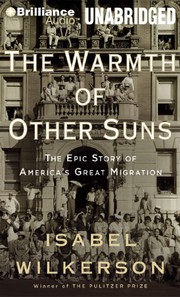Are you seeking to understand the complex relationship between poverty and education? Look no further than these 20 impactful books on poverty and education. From personal narratives to research-based analysis, these books offer valuable insights into the challenges and solutions surrounding this critical issue. Whether you’re an educator, student, policymaker, or simply passionate about social justice, these poverty and education books are essential reads for anyone looking to make a difference in the world of education.
Contents
- 1 20 Best Books About Poverty And Education
- 2 Evicted: Poverty and Profit in the American City
- 3 The Shame of the Nation: The Restoration of Apartheid Schooling in America
- 4 Nickel and Dimed: On (Not) Getting By in America
- 5 The Working Poor: Invisible in America
- 6 Savage Inequalities: Children in America’s Schools
- 7 Hillbilly Elegy: A Memoir of a Family and Culture in Crisis
- 8 The Other Wes Moore: One Name, Two Fates
- 9 The Color of Water: A Black Man’s Tribute to His White Mother
- 10 Educated: A Memoir
- 11 Random Family: Love, Drugs, Trouble, and Coming of Age in the Bronx
- 12 The Glass Castle: A Memoir
- 13 There Are No Children Here: The Story of Two Boys Growing Up in The Other America
- 14 The Promise of a Pencil: How an Ordinary Person Can Create Extraordinary Change
- 15 The End of Poverty: Economic Possibilities for Our Time
- 16 The New Jim Crow: Mass Incarceration in the Age of Colorblindness
- 17 The Price of Inequality: How Today’s Divided Society Endangers Our Future
- 18 The Spirit Level: Why Greater Equality Makes Societies Stronger
- 19 The Warmth of Other Suns: The Epic Story of America’s Great Migration
- 20 The Unbanking of America: How the New Middle Class Survives
- 21 The American Way of Poverty: How the Other Half Still Lives
- 22 Conclusion
- 23
- 24 Books on Names For Preschool: 2024 Update of the Best Titles
- 25 Discover Best Pets Books: 20 Key Titles, 2024 Updated
- 26 Discover the Best Weddings Books in the 2024 Updated Edition
20 Best Books About Poverty And Education
Evicted: Poverty and Profit in the American City
by Matthew Desmond
Evicted: Poverty and Profit in the American City by Matthew Desmond is a gripping book on poverty and education that sheds light on the devastating cycle of eviction and its impact on low-income families. Through in-depth research and powerful storytelling, Desmond exposes the harsh realities faced by individuals struggling to make ends meet in America’s cities, where poverty and education intersect in profound ways. The book provides a raw and eye-opening look at the housing crisis and the exploitation of the poor by landlords and the legal system. It also delves into the emotional and psychological toll of eviction, as well as its long-term consequences on families and communities. Evicted is a must-read for anyone seeking to understand the complex and urgent issues surrounding poverty and education.
The Shame of the Nation: The Restoration of Apartheid Schooling in America
by Jonathan Kozol
The Shame of the Nation: The Restoration of Apartheid Schooling in America by Jonathan Kozol is a powerful and thought-provoking book that sheds light on the disturbing realities of the American education system. Kozol exposes the deep-rooted inequalities and segregation that exist within the education system, painting a stark picture of the pervasive apartheid-like conditions in schools across the nation. With a keen focus on the impact of race and class, the book delves into the systemic issues that perpetuate educational disparities, offering a compelling critique of the injustices faced by marginalized communities. Kozol’s poignant exploration of the intersection between poverty and education challenges readers to confront the harsh realities faced by many students and families, making it a must-read for anyone passionate about social justice and equity in education.
Nickel and Dimed: On (Not) Getting By in America
by Barbara Ehrenreich
Nickel and Dimed: On (Not) Getting By in America is a thought-provoking book on poverty and education by Barbara Ehrenreich. In this eye-opening account, Ehrenreich goes undercover to explore the struggles of low-wage workers in America. She takes on a series of minimum-wage jobs, from waitressing to cleaning, to understand the challenges faced by those trying to make ends meet. Through her immersive experience, Ehrenreich sheds light on the harsh realities of living on a meager income, the difficulty of finding affordable housing, and the daily obstacles that prevent individuals from breaking the cycle of poverty and education. Her compelling narrative offers a poignant look at the intersection of poverty and education and raises important questions about social inequality and the American dream.
The Working Poor: Invisible in America
by David K. Shipler
The Working Poor: Invisible in America by David K. Shipler is a powerful book on poverty and education that sheds light on the struggles of low-income families in America. Shipler delves into the complexities of poverty and its impact on individuals’ access to education, employment, and healthcare. Through personal stories and in-depth analysis, the author exposes the harsh realities faced by the working poor, challenging common stereotypes and misconceptions. The book about poverty and education also examines the systemic barriers that perpetuate the cycle of poverty, offering valuable insights into the intersection of economic hardship and educational opportunities. With a poignant and empathetic narrative, Shipler invites readers to confront the invisible struggles of those living on the margins of society, making this a vital read for anyone seeking a deeper understanding of poverty and education.
Savage Inequalities: Children in America’s Schools
by Jonathan Kozol
Savage Inequalities: Children in America’s Schools is a powerful book on poverty and education by Jonathan Kozol. In this eye-opening account, Kozol takes readers on a journey through the stark disparities in educational opportunities for children living in impoverished communities across the United States. Through compelling narratives and extensive research, Kozol exposes the harsh realities faced by children in underfunded and neglected schools, where inadequate resources and systemic injustices perpetuate a cycle of poverty and inequality. This poignant exploration sheds light on the profound impact of socio-economic disparities on the educational experiences of young learners, presenting a compelling case for urgent reform. Savage Inequalities is a thought-provoking and essential read for anyone seeking to understand the deep-rooted challenges within the education system and the implications of inequality on the lives of America’s youth.
Hillbilly Elegy: A Memoir of a Family and Culture in Crisis
by J.D. Vance
Hillbilly Elegy: A Memoir of a Family and Culture in Crisis by J.D. Vance is a poignant and insightful book about poverty and education in America. The author, a Yale Law School graduate and former marine, shares his personal story of growing up in a working-class family in Appalachia, navigating the challenges of poverty, addiction, and a struggling education system. Vance offers a unique perspective on the complex dynamics of his family and community, shedding light on the social and economic issues that plague many rural areas. With raw honesty and compelling storytelling, he explores the impact of poverty and education on his own life and the lives of those around him. Hillbilly Elegy is a powerful and thought-provoking book on poverty and education that delves into the complexities of class, culture, and the American Dream.
The Other Wes Moore: One Name, Two Fates
by Wes Moore
The Other Wes Moore: One Name, Two Fates by Wes Moore is a captivating exploration of the impact of socioeconomic circumstances on two individuals who share the same name. This thought-provoking book delves into the intersection of social inequality, lack of opportunities, and the power of education in shaping the destinies of the two Wes Moores. Through their parallel yet divergent life paths, the author sheds light on the complexities of the cycle of disadvantage and the pivotal role of education in breaking free from it. The book provides a compelling narrative that delves into the nuances of the individuals’ experiences, offering a poignant reflection on the realities of growing up in underserved communities. With its powerful storytelling and insightful analysis, this book on poverty and education is a must-read for those seeking a deeper understanding of the far-reaching implications of social inequality.
The Color of Water: A Black Man’s Tribute to His White Mother
by James McBride
The Color of Water: A Black Man’s Tribute to His White Mother by James McBride is a poignant memoir that delves into the author’s experiences growing up in a racially divided society. The book explores the complexities of identity, family, and the pursuit of education in the face of adversity. Through a series of alternating chapters, McBride narrates his own story of growing up in poverty and the struggles he faced, while also sharing the remarkable life story of his mother, a white Jewish woman who faced her own challenges and prejudices. The book provides a powerful exploration of the intersection of race, identity, and education, making it a compelling read for anyone interested in understanding the impact of poverty on personal and educational development.
Educated: A Memoir
by Tara Westover
Educated: A Memoir by Tara Westover is a captivating book on poverty and education, detailing the author’s remarkable journey from a childhood of poverty and education deprivation to earning a PhD from Cambridge University. Westover grew up in a strict, survivalist family in rural Idaho, with no formal education and limited exposure to the outside world. Despite facing immense challenges, she eventually broke free from her turbulent upbringing and pursued a path of education and poverty overcoming. Her story is an inspiring testament to the transformative power of education and poverty, and the resilience of the human spirit. This poverty and education book is a powerful exploration of the impact of poverty and education on one’s life, and a testament to the importance of pursuing knowledge and learning.
Random Family: Love, Drugs, Trouble, and Coming of Age in the Bronx
by Adrian Nicole LeBlanc
Random Family: Love, Drugs, Trouble, and Coming of Age in the Bronx by Adrian Nicole LeBlanc is a gripping nonfiction narrative that delves into the lives of two young women, Jessica and Coco, as they navigate the challenges of growing up in the Bronx. The book offers an intimate portrayal of their struggles with economic hardship, crime, drug addiction, and the impact of the criminal justice system on their lives. LeBlanc’s immersive storytelling brings to light the complexities of poverty, family dynamics, and the pursuit of education in an environment marked by adversity. Through vivid and detailed storytelling, the author paints a poignant and eye-opening picture of the realities faced by those living in marginalized communities. This is a compelling and thought-provoking book about the intersection of love, trouble, and the quest for education amidst the challenges of poverty.
The Glass Castle: A Memoir
by Jeannette Walls
The Glass Castle is a captivating memoir by Jeannette Walls that delves into the author’s tumultuous upbringing in a dysfunctional family marked by financial instability and lack of formal education. This compelling book chronicles Walls’ experiences growing up in dire circumstances, navigating the challenges of poverty and learning to fend for herself. Throughout the memoir, Walls also explores the impact of her unorthodox upbringing on her education, resilience, and determination to break free from the cycle of poverty. The Glass Castle is a poignant and thought-provoking exploration of the effects of economic hardship and the power of education in overcoming adversity. With its raw and honest narrative, this memoir is a must-read for anyone interested in understanding the complexities of poverty and the importance of education in shaping one’s future.
There Are No Children Here: The Story of Two Boys Growing Up in The Other America
by Alex Kotlowitz
There Are No Children Here by Alex Kotlowitz is a poignant and compelling book about two young boys growing up in the midst of urban hardship. Set in a Chicago housing project, the book offers a raw and honest portrayal of the challenges faced by children living in impoverished conditions. Through Kotlowitz’s immersive storytelling, readers are given a glimpse into the struggles of these boys as they navigate a world of violence, drugs, and limited opportunities. The book sheds light on the intersection of poverty and education, highlighting the barriers that hinder these children from accessing quality schooling and achieving their full potential. Kotlowitz’s powerful narrative prompts readers to confront the harsh realities of urban life and consider the urgent need for systemic change in addressing the issues of poverty and education.
The Promise of a Pencil: How an Ordinary Person Can Create Extraordinary Change
by Adam Braun
The Promise of a Pencil: How an Ordinary Person Can Create Extraordinary Change by Adam Braun is an inspiring book about the intersection of need and opportunity. It’s a powerful story of one person’s journey to make a difference in the world. The author shares his experiences of starting a non-profit organization that builds schools in developing countries and provides educational opportunities for children living in underprivileged communities. Through his personal anecdotes and insights, Braun challenges readers to think about the impact they can have on the world, and the difference they can make in the lives of others. This book about lack and learning is a call to action for anyone who wants to make a positive change in the world, and a reminder that even the smallest actions can lead to extraordinary outcomes.
The End of Poverty: Economic Possibilities for Our Time
by Jeffrey D. Sachs
The End of Poverty: Economic Possibilities for Our Time by Jeffrey D. Sachs is a groundbreaking book on poverty and education that offers a comprehensive analysis of global poverty and provides practical solutions for addressing this critical issue. Sachs, an esteemed economist, presents a compelling argument that extreme poverty and education are not inevitable, and outlines a bold plan for eradicating it within our lifetime. Drawing on his extensive research and first-hand experience, Sachs explores the complex interplay of economic, political, and social factors that perpetuate poverty and education and advocates for a holistic approach that integrates economic development, healthcare, and education. This thought-provoking book about poverty and education challenges readers to reconsider their perceptions of global poverty and education and inspires them to take action towards creating a more equitable world.
The New Jim Crow: Mass Incarceration in the Age of Colorblindness
by Michelle Alexander
The New Jim Crow: Mass Incarceration in the Age of Colorblindness by Michelle Alexander is a thought-provoking examination of the intersection between race, poverty, and the criminal justice system in America. Alexander argues that the system of mass incarceration has effectively created a new form of racial segregation, akin to the Jim Crow laws of the past, by disproportionately targeting and disenfranchising black and brown communities. Through meticulous research and compelling analysis, the book exposes the systemic inequalities and biases that perpetuate a cycle of poverty and limited access to education for those impacted by the criminal justice system. The New Jim Crow is a powerful and eye-opening critique of the current state of the American legal system, making it a must-read for anyone interested in understanding the complex dynamics of race, poverty, and education in the United States.
The Price of Inequality: How Today’s Divided Society Endangers Our Future
by Joseph E. Stiglitz
The Price of Inequality, written by Joseph E. Stiglitz, delves into the issue of societal division and its implications for the future. This thought-provoking book explores the widening gap between the rich and the poor, as well as the impact of inequality on education, opportunities, and social mobility. Stiglitz, a Nobel Prize-winning economist, presents a compelling argument for how inequality undermines economic growth and stability, leading to a less prosperous and cohesive society. Through a combination of data-driven analysis and real-life examples, the book offers a sobering look at the high cost of inequality, particularly in the realms of education and economic opportunities. The Price of Inequality is a timely and essential read for anyone concerned about the societal implications of inequality and its effects on education and poverty.
The Spirit Level: Why Greater Equality Makes Societies Stronger
by Richard Wilkinson and Kate Pickett
The Spirit Level: Why Greater Equality Makes Societies Stronger, written by Richard Wilkinson and Kate Pickett, is a thought-provoking book on the impact of inequality on societies. This book delves into the correlation between income inequality and various social issues, such as health, education, and crime rates. Through compelling evidence and research, the authors argue that more equal societies tend to be healthier, happier, and more cohesive. They make a compelling case for the societal benefits of reducing inequality, presenting a powerful argument for policy changes and social reform. This book is a must-read for anyone interested in understanding the relationship between inequality and social well-being, making it a valuable resource for those interested in the intersection of poverty and education.
The Warmth of Other Suns: The Epic Story of America’s Great Migration
by Isabel Wilkerson
The Warmth of Other Suns: The Epic Story of America’s Great Migration by Isabel Wilkerson is a compelling narrative that delves into the mass movement of Black Americans from the oppressive South to the promised land of the North and West. This book on poverty and education exposes the harsh realities of segregation, discrimination, and economic hardship faced by those who sought a better life outside of the Jim Crow South. Through vivid storytelling and meticulous research, Wilkerson captures the struggles and triumphs of individuals who were determined to escape the poverty and lack of educational opportunities that plagued their communities. The Warmth of Other Suns is a poignant and eye-opening exploration of the impact of poverty and lack of education on generations of African Americans, and a testament to the resilience and courage of those who dared to seek a better future.
The Unbanking of America: How the New Middle Class Survives
by Lisa Servon
The Unbanking of America: How the New Middle Class Survives by Lisa Servon is a thought-provoking book on poverty and education. Servon, a former Wall Street banker, explores the challenges faced by the new middle class in accessing financial services. She delves into the world of alternative financial services such as payday lenders and check-cashing stores to understand why people choose these options over traditional banks. Servon’s in-depth research and personal anecdotes provide a compelling look at the financial struggles of working-class Americans. The book offers valuable insights into the intersection of economic inequality, financial education, and the impact of banking policies on individuals and communities. It is a must-read for anyone interested in understanding the complexities of financial inclusion and the impact on the new middle class.
The American Way of Poverty: How the Other Half Still Lives
by Sasha Abramsky
The American Way of Poverty: How the Other Half Still Lives by Sasha Abramsky is a compelling book on deprivation and learning. Abramsky delves into the grim reality of financial struggle and the impact it has on families, education, and society as a whole. He sheds light on the lives of those living on the margins, exploring the challenges they face in accessing quality education, healthcare, and employment opportunities. Through powerful storytelling and in-depth research, Abramsky exposes the harsh truth of the American way of destitution and its profound effects on the education system. This eye-opening book about indigence and learning is a call to action, urging readers to confront the systemic issues that perpetuate inequality and hinder educational advancement for underprivileged communities.
Conclusion
Exploring the 20 best books about Poverty And Education has been an eye-opening journey. These insightful reads shed light on the complex relationship between poverty and education, offering valuable perspectives and solutions. Whether you’re an educator, policymaker, or simply passionate about social issues, these books are essential additions to your reading list. From personal narratives to academic research, there’s something for everyone looking to deepen their understanding of this critical intersection. Dive into these books and equip yourself with the knowledge and empathy needed to drive positive change in the realm of poverty and education.
Which Poverty And Education book is best?
The best book on Poverty And Education can vary with personal preference, but three widely recommended titles are:
- Evicted: Poverty and Profit in the American City by Matthew Desmond,
- The Shame of the Nation: The Restoration of Apartheid Schooling in America by Jonathan Kozol,
- Nickel and Dimed: On (Not) Getting By in America by Barbara Ehrenreich.
Each offers valuable insights and could be a great starting point.
What are the best books to learn about Poverty And Education?
For those looking to learn about Poverty And Education, there is a wealth of literature that can provide a comprehensive understanding of the subject. Some of the most highly recommended books include:
- Evicted: Poverty and Profit in the American City by Matthew Desmond,
- The Shame of the Nation: The Restoration of Apartheid Schooling in America by Jonathan Kozol,
- Nickel and Dimed: On (Not) Getting By in America by Barbara Ehrenreich,
- The Working Poor: Invisible in America by David K. Shipler,
- Savage Inequalities: Children in America’s Schools by Jonathan Kozol,
- Hillbilly Elegy: A Memoir of a Family and Culture in Crisis by J.D. Vance,
- The Other Wes Moore: One Name, Two Fates by Wes Moore,
- The Color of Water: A Black Man’s Tribute to His White Mother by James McBride,
- Educated: A Memoir by Tara Westover,
- Random Family: Love, Drugs, Trouble, and Coming of Age in the Bronx by Adrian Nicole LeBlanc
These books offer a range of perspectives on Poverty And Education, covering various aspects and approaches to the subject.
What are the best books on Poverty And Education?
The best books on Poverty And Education include:
- Evicted: Poverty and Profit in the American City by Matthew Desmond,
- The Shame of the Nation: The Restoration of Apartheid Schooling in America by Jonathan Kozol,
- The Glass Castle: A Memoir by Jeannette Walls,
- There Are No Children Here: The Story of Two Boys Growing Up in The Other America by Alex Kotlowitz,
- The Color of Water: A Black Man’s Tribute to His White Mother by James McBride,
- Hillbilly Elegy: A Memoir of a Family and Culture in Crisis by J.D. Vance.
Each offers unique insights into the subject. While these books on the topic of Poverty And Education are highly regarded, it’s important to note that any list of ‘best’ books is subjective and reflects a range of opinions.
What are the best Poverty And Education books of all time?
Choosing the best Poverty And Education books of all time can vary depending on who you ask, but seven titles that are often celebrated include
- Evicted: Poverty and Profit in the American City by Matthew Desmond,
- The Shame of the Nation: The Restoration of Apartheid Schooling in America by Jonathan Kozol,
- Savage Inequalities: Children in America’s Schools by Jonathan Kozol,
- The Color of Water: A Black Man’s Tribute to His White Mother by James McBride,
- Random Family: Love, Drugs, Trouble, and Coming of Age in the Bronx by Adrian Nicole LeBlanc,
- There Are No Children Here: The Story of Two Boys Growing Up in The Other America by Alex Kotlowitz,
- and The Glass Castle: A Memoir by Jeannette Walls.
Each of these books has made a significant impact in the field of Poverty And Education and continues to be influential today.

